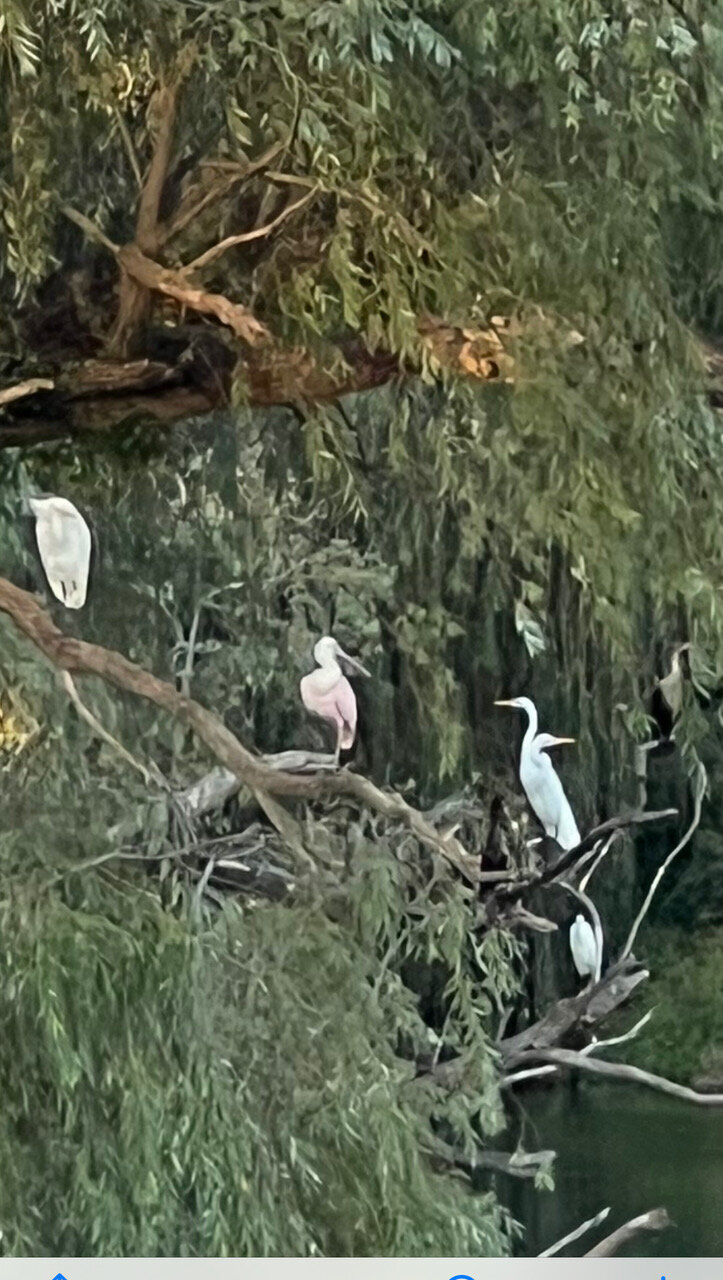Read here this rare bird that came to the Five Towns
Willow Pond, the site of a major restoration a decade ago, is now home to a rare bird species. The roseate spoonbill, a bird typically native to warmer climates, has inhabited the area drawing bird watchers and photographers to the Five Towns.
Located on Everit Avenue in Hewlett Bay Park, this 4.5-acre pond was once filled with debris and covered with duckweed.
“The pond fell into an awful state many years ago,” Hewlett Harbor Mayor Mark Weiss, said. “It was neglected.”
Years of minimal upkeep left the pond inhabitable for many aquatic and land species. Len Oppenheimer, a former Hewlett Harbor deputy mayor, served as the Willow Pond commissioner, heading the project to restore the space.
“I was talking about making it look presentable and it really turned into a passion project for me,” Oppenheimer said.
Nassau County Environmental Bond Act grants and a contribution from the Town of Hempstead funded the pond’s revival. The north end was dredged, removing buildup, sediment and debris, making room for oxygenated water and a higher survival rate for aquatic life.
Hewlett Bay Park and Hewlett Harbor also installed and maintained a filtration device. In 2013, the villages began using muck pellets in the pond, which released enzymes and bacteria to dissolve dead matter. In 2019, fountains and circulators were put in to promote water movement and prevent duckweed build up.
“The duckweed was as if somebody took green Saran Wrap and suffocated the turtles and fish in the pond,” Weiss said.
The villages have since maintained the pond with the help of consultants, making it livable for various species and enjoyable for the two village’s residents.
“Recently, it’s become an attraction for everyone to come and watch the birds,”, Hewlett Bay Park Deputy Mayor Antonio Oliviero said. “It’s an ecosystem now.
Another benefit of the pond revival, according to Weiss, has been the community interaction.
“It serves as a sanctuary of sorts for young and old throughout the area,” he said. “The back story of the pond’s restoration serves as a great example of how a municipality can come together with residents to restore it.”
The new inhabitant, the spoonbill, has increased visitation to the spot.
“It is estimated that there have been over 300 photographers from the tri-state area that have come to photograph the spoonbill,” Weiss said.
Oliviero said he hopes those coming to town still respect the refurbished environment.
“There’s a sign that says no fishing, no swimming,” he said.
He believes the restoration is linked to the roseate spoonbill’s arrival, being that the pond can now sustain wildlife.
The spoonbill was previously almost hunted to extinction for its bright pink feathering, according to Oppenheimer. He said the bird’s appearance is so unique because they are typically found in South America, Texas and Florida.
“It’s rare to see these birds this far north,” Oppenheimer said. “I guess climate change being what it is, they’ve migrated north.”
Weiss added that he appreciates the beauty of the spoonbill, surrounded by the pond ecosystem.
“Every single day, there are literally hundreds of white egrets and white herons that come to the pond, the pink one stands out against the white,” he said of the spoonbills coloring.






